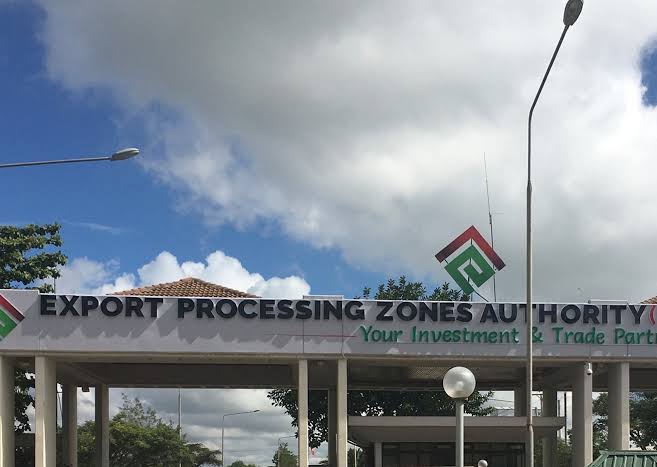Sharp focus has shifted to the management of the Export Processing Zone Authority led by its Acting CEO Hussein Adan Mohamed due to serious ethical and credibility questions. For years, the Athi River based EPZA has fell short in fiduciary management objectives due to systemic corruption aided by the lack of a substantive CEO.
The EPZA Acting CEO Hussein has successively sponsored numerous court cases without the Board approval to block the appointment of Ezekiel Owuor Otieno as the substantive CEO. Earlier this mnth,at the Employment and Labour Relations Court,Justice James Rika dismissed an application by the EPZA to overturn the court’s earlier decision that upheld Otieno’s appointment as the CEO.
The judge also ordered the Trade CS Moses Kuria to immediately gazette the appointment of Mr.Otieno as the substantive CEO.The High Court would later issue orders restraining the Cabinet Secretary from gazeting Mr.Otieno after numerous applications were filed against him,allegedly sponsored by the Acting CEO Hussein.
In several of its recent annual reports,the Auditor General highlighted the irregular contracting of law firms to litigate on behalf of the EPZA as one of the most unscrupulous management activities and stopped short of calling it a of public funds and an abuse of the judicial process.
Analysts who spoke to us on condition of anonymity said problems at EPZA stem from the Board’s failure to appoint a substantive and competent Chief Executive Officer.Concerns
have also been raised about the tenure of Mr.Hussein who has been the acting CEO for more than a year without any requisite qualifications.
The parastatal has not had a substantive CEO since 2018 invariably leading the Acting CEO to pass decisions that undermine core objectives of the organisation through weak internal controls, poor risk management and an overall lack of accountability and deficient governance.
Majorly,problems at the EPZA arise from integrity questions such as conflict of interest among senior management.An audit report exposed how EPZA management conspired to misclassify director expenses amounting to more than Sh300 million in a single financial year! The report also revealed that some EPZA officials paid themselves double allowances topping half a billion shillings.
Insiders at EPZA revealed to this writer that senior members of the management team led by the acting CEO are routinely acting in conspiracy to influence decisions that would serve
their personal interests. In one of its reports,the Auditor General pointed out irregular
issuance of a licence to operate a private business within the EPZA’s parcels of land. The company is reportedly connected to a senior member of the EPZA management.
Other integrity red flags raised by the Auditor General include irregular award of procurement contracts amounting to hundreds of millions of shillings, paying advance fees that exceed work completed by large margins.
At one point,the EPZA management was complicit in authorising the significant varying contract terms and value midstream, contrary to provisions of the Public Procurement and Asset Disposal Act.
But perhaps the most serious of the EPZA’S management omissions has been its reluctance to secure the parastatals assets by failing to register its properties and failing to valuate its assets for more than eight years leaving them exposed and susceptible to theft or easy disposal. The other problem arises from poor record keeping of EPZA statutory staff deductions amounting to hundreds of millions of shillings.
Observers say these are developments that would never have taken place had the EPZA had a substantive CEO backed by a strong management team. The EPZA board understandably finds the young acting CEO Hussein Adan Mohamed easy to manipulate and that is the reason they are meddling and creating challenges that are in breach of the law and amounting to misappropriation of public funds.
To compound these problems, most senior management positions are occupied by individuals in acting capacities weakening accountability responsibilities and in violation.


